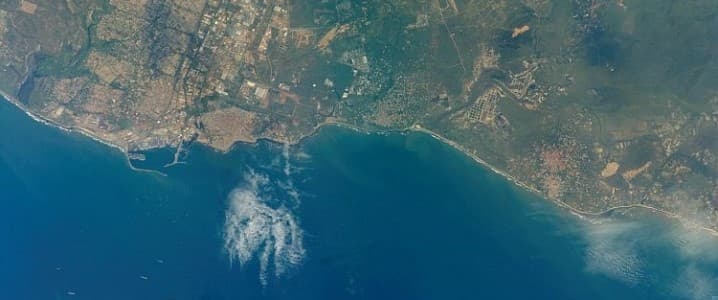
African and Western officials are concerned that the conflicts and coups in the Sahel region could spill over to the coast of West Africa, which hosts several major oil production projects and export terminals.Since 2020, there have been military coups in Burkina Faso, Mali, and Niger, while violence from Islamist insurgents has spiked in recent months. Anxiety has grown over potential spillovers of extremist violence into the coastal countries in West Africa, including Benin, Cote d’Ivoire, Ghana, and Togo, all west of Nigeria, Africa’s top crude oil producer.
Cote d’Ivoire has recently seen a major new oil project start-up and a large new offshore discovery, courtesy of Italian major Eni. Benin is expected to soon begin oil exports from landlocked Niger via a new pipeline, Togo aims to introduce energy reforms to boost resource development, while Ghana has a major offshore producing field, Jubilee.
Last year, General Abdourahamane Tiani, the commander of Niger’s presidential guard, was appointed head of state by a governing council set up by military forces that ousted President Mohammed Bazoum. A group of military commanders overthrew the Niger government and the country’s army declared its support for the coup.In Mali, the notorious Russian mercenary Wagner Group has capitalized on the absence of foreign involvement to expand its influence, according to the Center for Preventive Action (CPA) program.
Extremist violence has surged across the Sahel, with at least 7,800 civilian deaths in the first seven months of 2023, a significant increase from 2022, according to the Armed Conflict Location and Event Data Project (ACLED).
“Since 2020, the Sahel has experienced seven irregular transfers of power because leaders have failed to address poor governance and public grievances or adequately resourced their militaries to achieve their missions. This turmoil raises the likelihood that these crises will metastasize and spillover to neighboring countries in Coastal West Africa in 2024,” the U.S. intelligence community said in its unclassified annual threat assessment report in February.
“A spread of Sahel-type instability to the hugely more populous littoral states — 368 million people from Senegal to Nigeria — would present a new order of threat to U.S. and international security, trade routes and economies,” The United States Institute of Peace said last month.U.S. Vice President Kamala Harris announced last year a decade-long U.S. commitment of $100 million “to help address the threats of violent extremism and instability” in the coastal countries of Benin, Cote d’Ivoire, Ghana, Guinea, and Togo.
The EU, for its part, confirmed Europe’s commitment to the Gulf of Guinea, and pledged continued support to counter the spillover of insecurity from the Sahel. The EU handed over 105 armored vehicles to the Ghana Armed Forces, part of a larger funding package from the European Peace Facility, aimed at enhancing “the country’s capacity to respond effectively to potential threats, strengthen intelligence gathering, reinforce border surveillance, and maintain stability in the wider region.”
Potential spillover of conflicts to the coastal West African countries could endanger some oil projects and deter foreign investment.In the region, the Jubilee oilfield offshore Ghana saw oil production in the fourth quarter average around 92,400 boepd, one of the minority partners in the field, Kosmos Energy, said in February. Production is expected to rise through this year with additional wells coming online.
Offshore Côte d’Ivoire, Italy’s Eni started production of oil and gas from the Baleine Field in August 2023, less than two years after the field discovery in September 2021. Eni says this is the first Scope 1 and 2 emissions-free production project in Africa. With the start-up of Phase 2 by the end of 2024, field production would rise to around 50,000 bpd of oil and approximately 70 Mscf/d of associated gas.
Then this year, the President of Côte d’Ivoire, Alassane Ouattara, and Eni’s CEO Claudio Descalzi announced a major new oil discovery named Calao. The discovery is now the second largest offshore Côte d’Ivoire, following the Baleine field.In Benin, a new pipeline from Niger, with a capacity of 110,000 bpd, has been completed, paving the way for higher oil production in Niger and exports from the Benin port of Seme. The first crude lifting from Benin is expected later in April or early May.
Source:https://oilprice.com
